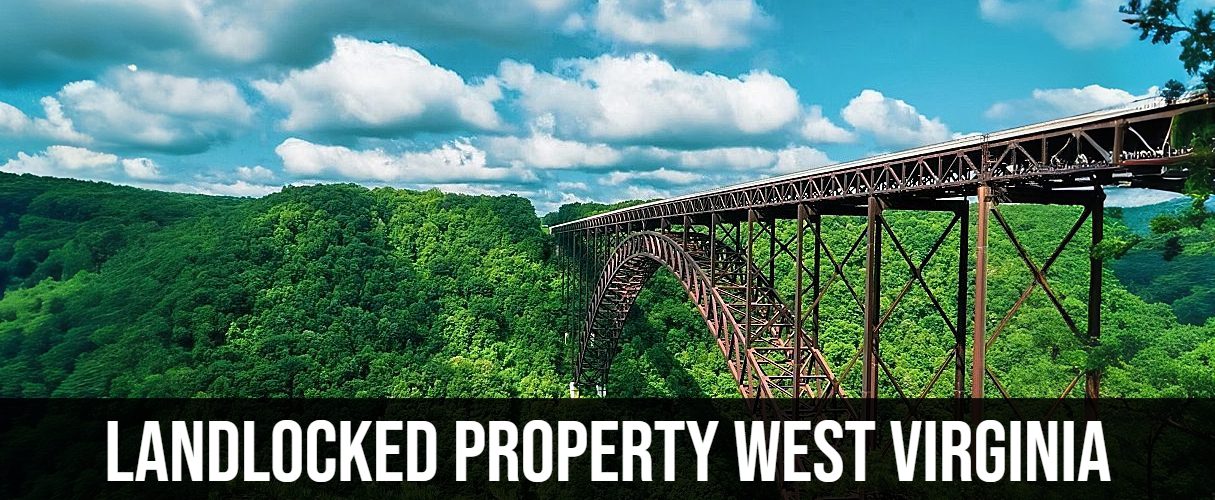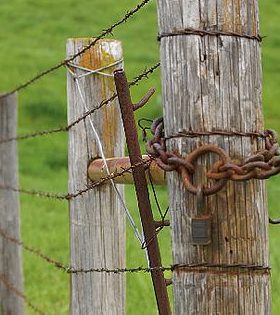
If you’re eyeing some real estate in West Virginia, beware of stumbling into a landlocked property West Virginia – because nothing says adventure like buying a piece of land that can’t reach a public road without a helicopter or a pair of sturdy hiking boots. This article will guide you through the maze of legal issues surrounding landlocked property West Virginia, offering insights and advice to ensure you know exactly what you’re getting into before you sign on the dotted line.
Owning land that’s cut off from the rest of civilization might sound like the perfect plot for a survivalist reality show, but in real estate terms, it’s a scenario you’ll want to handle with care. From potential legal skirmishes with neighbors over access rights to the impact on your property’s value and usability, understanding the quirks of landlocked property is crucial. Whether you’re planning to build your dream cabin in the woods or just want a quiet spot away from the hustle and bustle, getting to grips with the challenges and opportunities of landlocked properties in West Virginia will help you make a savvy investment—not a plot twist you’ll regret.

What Does Landlocked Mean in Property Law?
In the curious world of property law, “landlocked” describes those elusive parcels of land that don’t quite make it to a public road or highway. Imagine owning a piece of land that you can’t get to without playing hopscotch over your neighbor’s yard. That’s the challenge with landlocked property West Virginia—it can turn a simple trip to your land into an expedition. For owners of such property, gaining access often means negotiating the right to trek across neighboring lands. This scenario frequently necessitates hashing out legal agreements like easements or rights-of-way, ensuring you can reach your land without having to launch a full-scale diplomatic mission each time.
Why is Landlocked Bad to Purchase?
Why might buying landlocked property West Virginia not be the best plot twist for your real estate story? Well, without direct access to a public road, developing this type of property can become a real-life game of “Red Rover” with your neighbors. Not only might the land be tricky (or downright impossible) to develop due to its isolation, but setting up an easement or right-of-way to reach it can burn both time and money. Plus, trying to persuade neighbors to let you cross their land can turn into a less-than-neighborly debate. And when it’s time to sell? The lack of a clear path to your property might make potential buyers as scarce as hen’s teeth.
What are the Easement Rights in WV?
When it comes to easing the pains of owning landlocked property West Virginia, easements are like the secret passages of real estate. They can be set up in several clever ways: by necessity (when it’s the only option to access your property), by implication (when the use of one part of land depends on access to another), or by prescription (where someone has openly used the land for a good chunk of time, typically 10-20 years, without a peep from the owner). And let’s not forget the express grant—an outright written agreement between neighbors laying down the law of the land access.
Who is Responsible for Easement Maintenance in West Virginia?
In the twisty world of landlocked property West Virginia, maintaining that all-important easement usually falls on the shoulders of the landlocked landowner. That means shelling out for any repairs or upkeep to keep your access route in tip-top shape. However, don’t forget to check the fine print of your easement agreement; sometimes, the responsibility dance can be choreographed a bit differently depending on what’s been agreed upon.
What are 2 Disadvantages of Being Landlocked?
One quirky downside of owning a landlocked property West Virginia is like having a treasure chest but no key; access can be tricky and potentially pricey. Owners of landlocked property often find themselves in negotiations with neighbors, trying to secure an easement or right-of-way just so they can reach their own land. Imagine having to sweet-talk your way through someone’s backyard every time you wanted to go home!
How Wide is the Right of Way in WV?
When it comes to the width of a right-of-way in West Virginia, it’s not a one-size-fits-all scenario. The size of your legal pathway depends largely on the terms hammered out in the easement agreement. Typically, it should be just roomy enough to let you (and potentially a small circus) access your landlocked property without having to suck in your gut.
What is Adverse Possession in West Virginia?
Ever heard of adverse possession? In West Virginia, it’s like quietly borrowing your neighbor’s garden gnome and, if no one squawks for ten years, voilà—it’s legally yours. To claim a piece of land through adverse possession, you must use the property openly and without permission, in a way that everyone can see, for a decade. The idea is you’ve been using it so blatantly that the real owner had every chance to kick you off but didn’t.
What is an Easement Preventing a Property Owner from Certain Activities?
A negative easement in West Virginia is essentially a legal “Don’t do that” sign. It might stop you from building a skyscraper that blocks your neighbor’s mountain view or from erecting a billboard in the path of an established right-of-way. It’s all about ensuring that while you enjoy your property, you’re not raining on your neighbor’s (for example, Virginia) parade either.
Negative easements are particularly important in preserving the character and utility of neighboring properties. They help maintain the status quo by preventing one property owner from making changes that could adversely affect another’s property. So, while it may feel like a restriction on your freedom, it’s also a safeguard that promotes harmony and fairness in how land is used across the board. Understanding these easements is crucial for both protecting your property rights and respecting those of your neighbors.
What is the Problem with Being Landlocked?
The main gripe with owning a landlocked property West Virginia is that it can seriously cramp the style of your development dreams. Without a clear pathway to the road, your property might be as inaccessible as a secret speakeasy without the password, reducing its value and utility. Plus, hammering out an easement or right-of-way isn’t just a headache; it can be as pricey and drawn-out as a major home renovation, with all the fun of a protracted negotiation with your neighbors—who might not be the most agreeable bunch.
What is Simple Possession in West Virginia?
Switching gears, simple possession in West Virginia refers to having property (usually a small amount of a controlled substance) without plans to distribute or sell. It’s a misdemeanor here, potentially leading to up to six months in the clink and a fine that could make your wallet a lot lighter.
However, it’s important to note that even though it’s classified as a misdemeanor, a conviction can still have serious consequences beyond just the immediate penalties. This could include a criminal record that may impact future employment opportunities, housing options, and even eligibility for certain licenses. So, while it may seem like a “simple” offense, the ripple effects can be far-reaching.
What are the Trespassing Laws in WV?
In West Virginia, trespassing is defined as entering or remaining on someone else’s property without permission or authority. Trespassing can be a criminal offense or a civil matter, depending on the circumstances. In general, if a person is on someone else’s property without permission, they are considered a trespasser and can be subject to arrest or civil liability. Property owners can take steps to prevent trespassing, such as posting signs or erecting fences. For more information, see West Virginia Code 61-3B-3.
Conclusion to Landlocked Property West Virginia
To wrap up, buying a landlocked property West Virginia can feel like solving a complex puzzle. It’s crucial to get your legal ducks in a row, understanding everything from easements to trespassing laws. Don’t go it alone—consulting with a seasoned real estate attorney might just save you from future property pitfalls. Remember, knowledge is power, especially when it comes to navigating the choppy waters of owning landlocked property West Virginia.
But don’t let the challenges overshadow the potential—once you’ve secured access, your landlocked property can become a valuable asset, offering both privacy and a unique investment opportunity. With the right approach, what may seem like a locked door today could open up to a world of possibilities tomorrow.